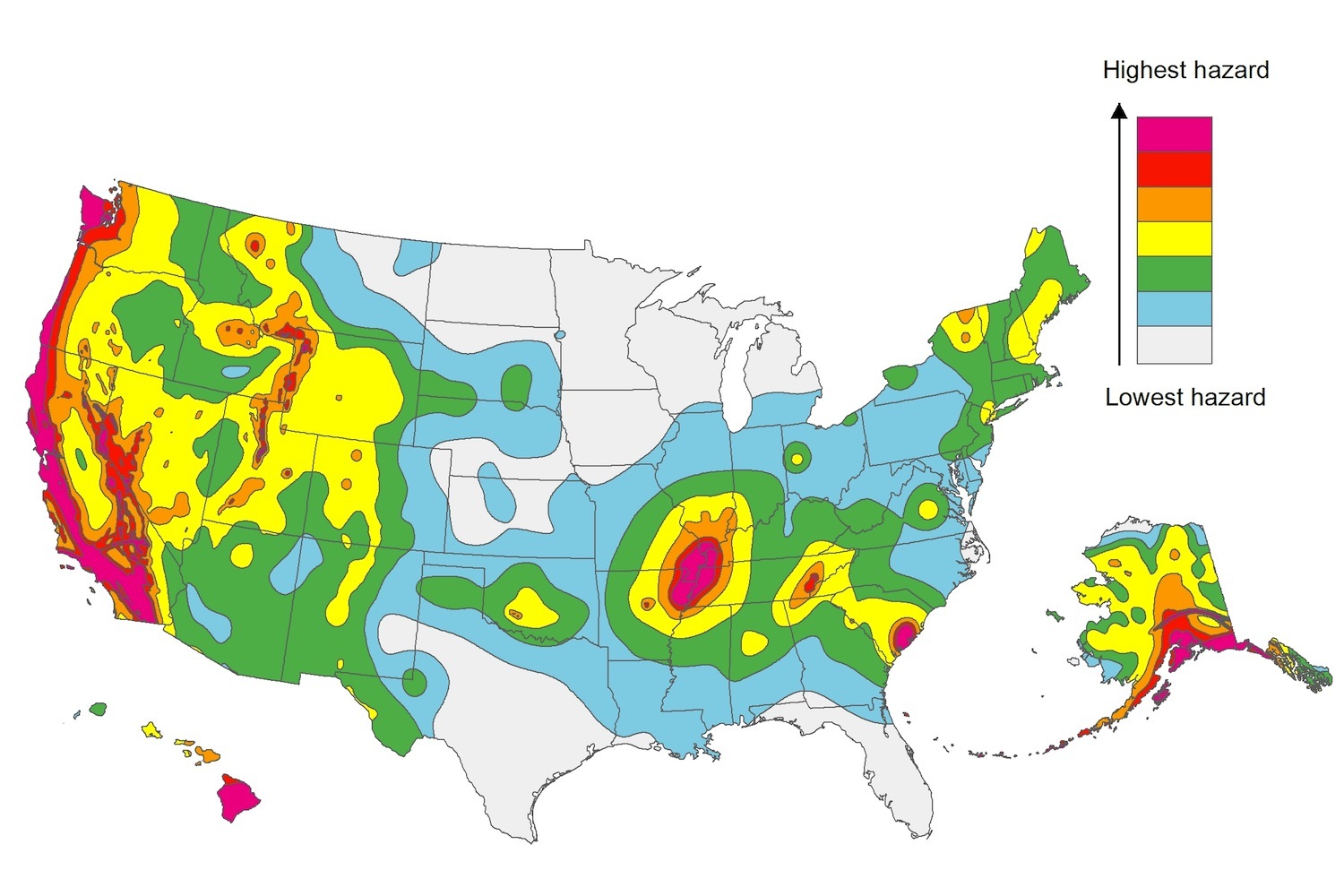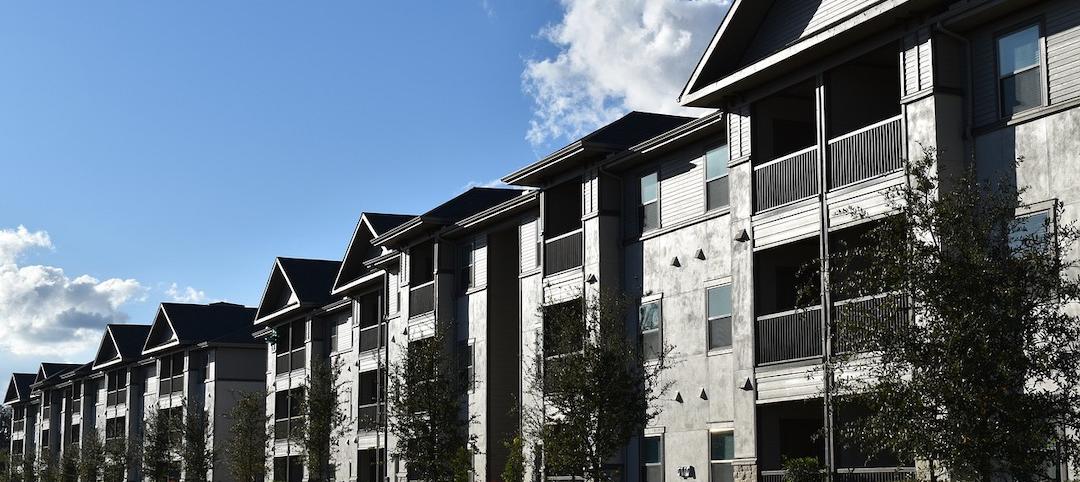The U.S. Geological Service recently released an update of U.S. National Seismic Hazard Maps that reflect the latest analysis of where future earthquakes will occur, how frequently they may occur, and their strength.
While all states have some potential for earthquakes, 42 of the 50 states have a reasonable chance of experiencing damaging ground shaking from an earthquake in the next 50 years. Sixteen states have a relatively high likelihood of experiencing damaging ground shaking. These states have historically experienced earthquakes with a magnitude 6 or greater. The hazard is especially high along the west coast, intermountain west, and in several active regions elsewhere such as near New Madrid, Mo., and near Charleston, S.C.
The eastern U.S. has the potential for larger and more damaging earthquakes than considered in previous maps and assessments. This finding is due to what scientists learned following the magnitude 5.8 earthquakes that struck Virginia in 2011. It was among the largest earthquakes to occur along the east coast in the last century, and indicated that even larger events in the region are possible.
The maps are used in risk analyses calculated using factors such as population levels, building exposure, and building construction practices. These assessments are used for establishing building codes, in the analysis of seismic risk for key structures, and in determining insurance rates. They can also aid emergency preparedness plans, and private property decisions such as re-evaluating one’s real estate and making it more resilient.
(http://www.usgs.gov/blogs/features/usgs_top_story/new-insight-on-the-nations-earthquake-hazards/)
Related Stories
Codes and Standards | Nov 16, 2021
NOAA, Univ. of Maryland, and ASCE partner on climate-smart engineering codes, standards
Efforts will account for climate change in future infrastructure design and construction.
Codes and Standards | Nov 15, 2021
Intl. Code Council and Modular Building Institute release new off-site construction standards
‘Will create consistency for off-site construction; accelerate the industry’.
Codes and Standards | Nov 12, 2021
GSA will likely shrink federal office space post-COVID
Agency also needs to address maintenance backlog.
Codes and Standards | Nov 10, 2021
Los Angeles launches fast-track office tenant improvements program
Red tape to be cut to make interiors healthier and safer.
Codes and Standards | Nov 9, 2021
Florida state building professionals call for mandatory high-rise building inspections
Group recommendation comes in wake of Surfside condo collapse.
Codes and Standards | Nov 8, 2021
Dept. of Energy to fund 10 pilot smart building projects
Connected communities will accelerate renewable energy adoption and grid resilience.
Codes and Standards | Nov 3, 2021
Fact sheets offer strategies to improve indoor air quality in schools
Center for Green Schools at USGBC document for people without a technical background.
Codes and Standards | Nov 2, 2021
Rapid acceleration of affordable housing development expected over next five years
Federal government programs will spur construction.
Codes and Standards | Nov 1, 2021
New bird-friendly technical design guide released
National Glass Assn. document offers design and installation best practices for glazing.
Codes and Standards | Nov 1, 2021
World’s first chief heat officer tackles how to protect Miamians from extreme heat
Focus on chronic exposure for outdoor workers and for those that can’t afford AC.

















